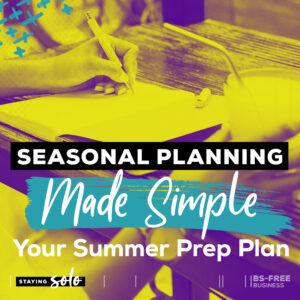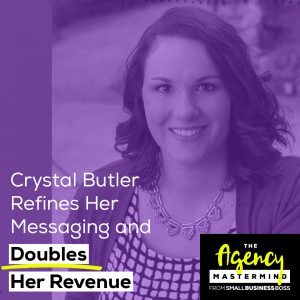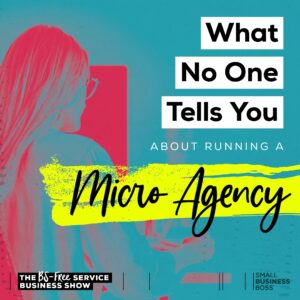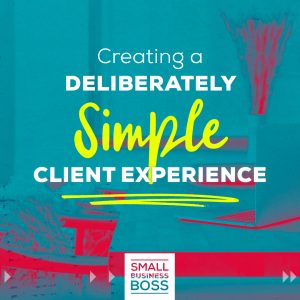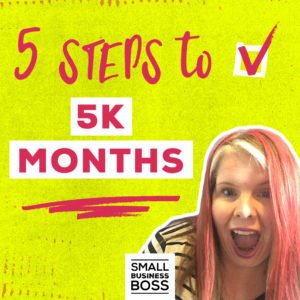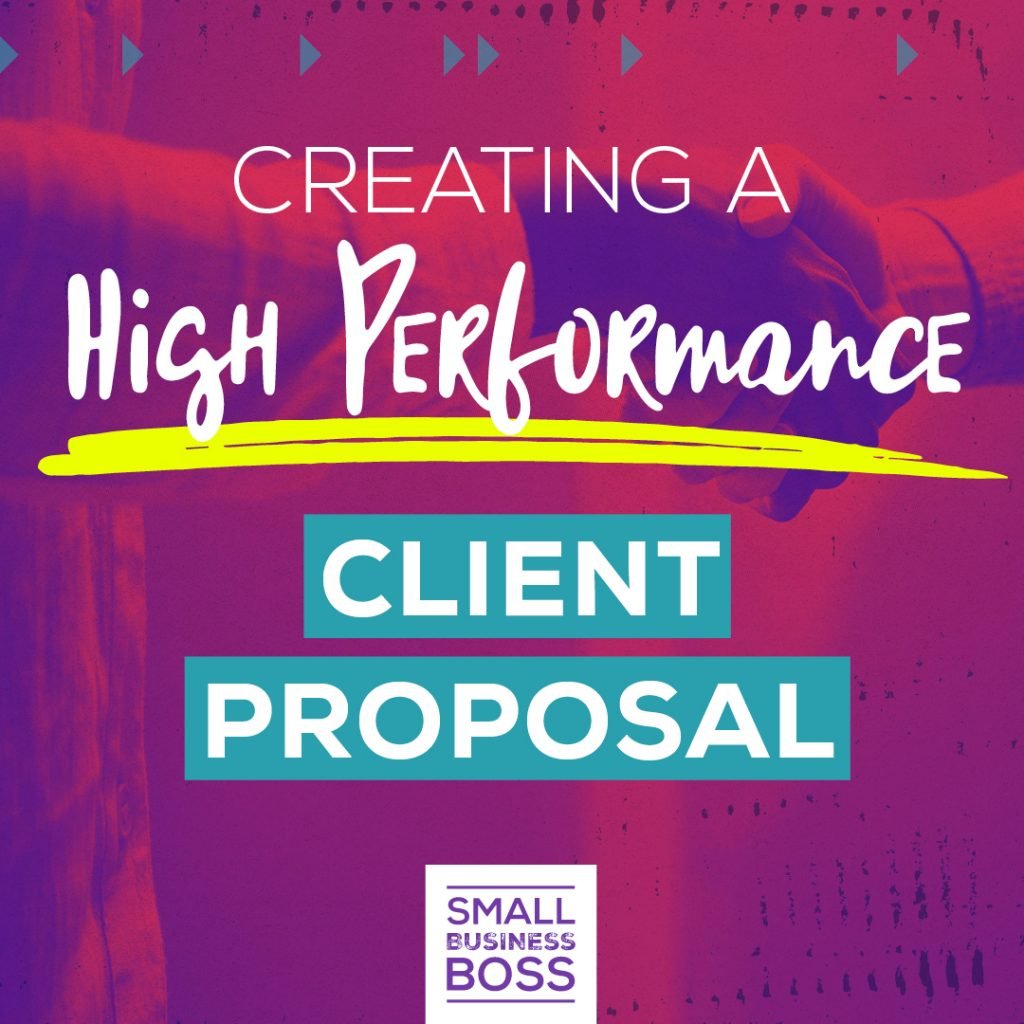
Search the site:
Episode 157: Creating a High-Performance Client Proposal
If there’s one thing that causes service business owners stress, it’s writing proposals — and with good reason. At the proposal stage, you pretty much want to win the business, and there’s a lot tied up in how the client reacts to the final product. In this episode, I’m going to share with you exactly how to create a high-performance client proposal that gets a yes.
Proposals are one of the most critical tools we have in our business, yet it’s something we have so much apprehension around that we avoid thinking of them if we don’t have to. I know how much can get tied up in the proposal process as we start fussing and worrying — and downright dreading — the entire thing.
But here’s a secret: I used to despise proposals because it felt like so much work, and it took up so much time. Then, one day, I realized that proposals could just be any other system in my business and that they weren’t really much different than packages.
Now, before we dive into proposals, I want to clear something up about packages vs. proposals. They suit different situations and types of clients. When we’re working with online entrepreneurs, packages work really well for us and often a proposal isn’t needed. But on the agency side when we’re working with B2B companies, we need to have detailed proposals.
There’s not a right or wrong, and sometimes, having packages mean you can streamline the proposal process as you’re able to plug and play your scope of work.
Your High-Performance Proposal
What if instead of every time you wrote a proposal, it wasn’t a big old stressful event but something you felt confident would help you land a new client?
Awesome, right? That’s exactly what we’re aiming for with this style of proposal.
Maybe you have a proposal in place, and it needs a few tweaks, or you’re just not sure what should be in a proposal in the first place. And if you’re not sure, when I first start working with mentoring clients, one of the very first things we end up working on together is their proposals.
Why? It’s because small changes and additions can make a significant difference.
The difference between a normal proposal and one with a wow factor comes down to a few things.
How We Work Together
This section outlines what the client can expect for your working relationship, and while that may seem more like something to include in your contracts, this section actually sets the tone for everything else to follow.
Because let’s face it, the scope of work and budget is one thing, but outlining exactly how the relationship flows helps paint a picture of what it’s like to work with you. That helps put everything into context and put any concerns or fears they may have about moving forward to rest.
This section is also powerful in that if you do work together, your new client has a handle on your office hours, turnaround times, and so on. And if those things don’t work for them, it’s a great way to screen them out before you face further issues.
About Your Company
This may sound obvious, but you need a solid About section to position your company as the best possible solution. The goal here is to ensure your proposal is a standalone package so that if they’re reviewing multiples, they know exactly why they should choose you.
This section isn’t a bio; it’s about being a solution to their problem. Share how you do things, why you do things, and why you’re uniquely positioned to help them. In this section, you can speak to your experience as well as the value and results you deliver.
Professional Fees
This should be its own section in the proposal and be towards the end. Don’t immediately attach a price tag to the project in the scope of work. You want to have other contextual information to help close the sale before they get to the price. You want the price to be an easy yes.
Positioning is key for this section.
Payment Terms and Conditions
The Professional Fees section should include a follow-on section that outlines the payment schedule and how they book the project. You can also include the policy on refunds, hours rollovers, items above the scope of work, and how payments can be made.
This section helps to call out any specific items for discussion before you move into the contract stage.
Speaking of contracts, I personally choose not to include my contract on the tail end of the proposal. I ask for them to review the proposal and then move to the contracts. I find including contractual language in the proposal can be overwhelming for the client, and I like to leave things open for discussion if we need to add, change, or alter the scope of work.
Your process may be different but think carefully about the experience you want for your proposals. One of the biggest things about a high-performance proposal is that it FEELS different than other proposals for the clients.
In an upcoming episode, I’m going to talk more about proposals and the sales and marketing process, including how I’m using our new proposal tool, Proposify. Making the move to this tool has been an amazing move for us, making our proposals so much more attractive and customizable. Plus, we have a two-month free trial you can sign up to check it out.
Links for the Show:

I’m Maggie Patterson (she/her), and services businesses are my business.
I have 20+ years of experience with client services, am a consultant for agency owners, creatives, and consultants, and vocal advocate for humane business practices rooted in empathy, respect, and trust.
Read or Listen to the Latest
For Solo Business Owners

Growing a solo service business is tough.
It’s even harder when you’re bombarded with BS advice that steers you away from your values and why you started your business in the first place.
This is the podcast for solo creatives and consultants who want to remain as a team of one and have zero interest in the hustle and grind of typical business teachings.
Subscribe now and never miss an episode.
For Micro Agency Owners
Most podcasts for agency owners obsess over revenue growth as the ultimate success metric.

But here’s the truth: not everyone wants to make millions. Your goal might be to build a sustainable business that lets you have a life and doesn’t run you into the ground.
Join me as I spill my shameless confessions and share everything I’ve learned about building a micro agency that skips the BS of tired and typical agency teachings.
Follow Now on All Major Podcast Platforms

